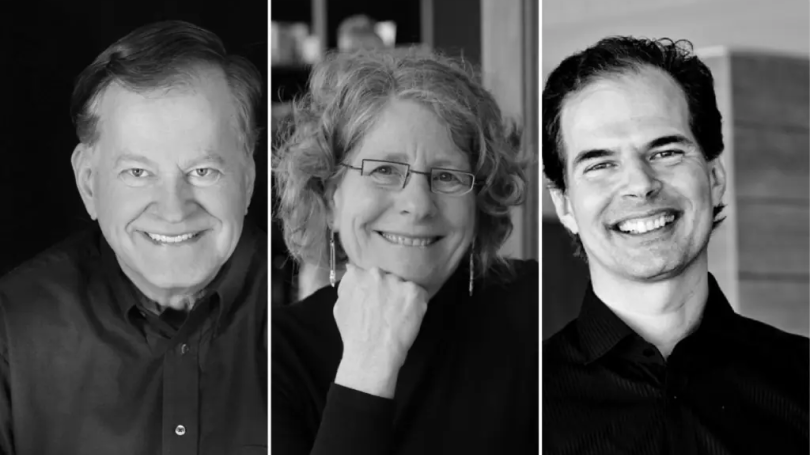
- People
- Curriculum
- Foreign Study
- News & Events
Back to Top Nav
For Immediate Release
December 9th, 2024
Media Contact: Chase Hardin
chase@futureoflife.org | 623.986.0161
As AI Capabilities Grow Dramatically, 'Future of Life Award' Given to Pioneers in Computer Ethics, AI Safety
SAN FRANCISCO – Yesterday, scholars Batya Friedman, James H. Moor, and Steve Omohundro were celebrated as the 2024 recipients of the Future of Life Award at a private event in San Francisco. The award honors individuals who have not been sufficiently recognized for their achievements despite making today's world dramatically better than it might otherwise have been, unsung heroes in shaping a better future for humanity.
This year, the Future of Life Institute (FLI) sought candidates who represented both the best scholarship and practical application of computer ethics and AI safety. Moor's insights created the philosophical framework for understanding AI's ethical implications; Omohundro's innovations address the technical risks and safety concerns associated with AI systems; and Friedman's groundbreaking work operationalizes these ideas by ensuring that ethical considerations are embedded in the design process.
"We can trace our current ethical and philosophical debates over aligning modern technology with human values to the scholarship of these three individuals," said Emilia Javorsky, Director of the Futures Program at the Future of Life Institute. "Their work gave us – scientists, policy-makers, activists, and the public – the requisite vocabulary and frameworks to keep up with advancements in computer and AI technology. We are honored to celebrate them here today."
Batya Friedman is a leading professor in human-computer interactions at the University of Washington. She founded the field of value-sensitive design, which promotes the integration of human values into technology development. Friedman's methodology influenced how ethical considerations are embedded in digital systems across multiple scientific disciplines.
"Values do not stand apart from the tools we build and how we choose to use them," said Batya Friedman, recipient of the Future of Life Award. "Today's recognition legitimates and celebrates a commitment to intentionally designing technologies that support human flourishing while preserving the richness and diversity of human experience. Value sensitive design isn't just a framework, it's a way of doing – of shaping technology with moral imagination."
James H. Moor, who is receiving the award posthumously, was a prominent professor at Dartmouth College. He defined the field of computer ethics through his influential article "What Is Computer Ethics?" It was his work that introduced key concepts into the discourse such as the "logical malleability" of computers and the potential "policy vacuums" this technology might therefore create.
Steve Omohundro is a pioneering AI researcher and scientist. His work was foundational to understanding the safety considerations of artificial intelligence. He was an early advocate for aligning AI with human values while raising awareness about the ethical implications of the technology.
"Understanding the fundamental drives of artificial intelligence systems isn't just an academic exercise; it's essential for creating beneficial AI that aligns with human values," said Steve Omohundro, one of the recipients of this year's Future of Life Awards. "This award highlights how crucial it is that we carefully design AI systems with appropriate goals and constraints, ensuring they work toward positive outcomes for humanity. We must embrace this responsibility as we develop increasingly powerful AI technologies."
Previous Future of Life Award honorees have included the leading creative voices behind WarGames and The Day After, those responsible for the development and popularization of the science behind nuclear winter, and three individuals who contributed to the creation of the Montreal Protocol.
The Future of Life Institute is a global non-profit organization working to steer the development of transformative technologies towards benefiting life and away from extreme large-scale risks. To find out more about our mission or explore our work, visit www.futureoflife.org.
To visit the article: https://futureoflife.org/fla-award/future-of-life-award-2024/
See also the video on youtube: